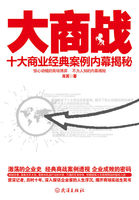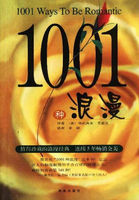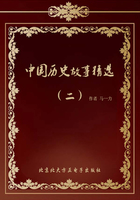Thus in the Assize of Bread and Ale, of the 51st of Henry III, the price of bread was regulated according to the different prices of wheat, from one shilling to twenty shillings the quarter, of the money of those times.But in the manuscripts from which all the different editions of the statutes, preceding that of Mr.Ruffhead, were printed, the copiers had never transcribed this regulation beyond the price of twelve shillings.Several writers, therefore, being misled by this faulty transcription, very naturally concluded that the middle price, or six shillings the quarter, equal to about eighteen shillings of our present money, was the ordinary or average price of wheat at that time.
In the Statute of Tumbrel and Pillory, enacted nearly about the same time, the price of ale is regulated according to every sixpence rise in the price of barley, from two shillings to four shillings the quarter.That four shillings, however, was not considered as the highest price to which barley might frequently rise in those times, and that these prices were only given as an example of the proportion which ought to be observed in all other prices, whether higher or lower, we may infer from the last words of the statute: et sic deinceps crescetur vel diminuetur per sex denarios.The expression is very slovenly, but the meaning is plain enough: "That the price of ale is in this manner to be increased or diminished according to every sixpence rise or fall in the price of barley." In the composition of this statute the legislature itself seems to have been as negligent as the copiers were in the transcription of the others.
In an ancient manuscript of the Regiam Majestatem, an old Scotch law book, there is a statute of assize in which the price of bread is regulated according to all the different prices of wheat, from tenpence to three shillings the Scotch boll, equal to about half an English quarter.Three shillings Scotch, at the time when this assize is supposed to have been enacted were equal to about nine shillings sterling of our present money.Mr.
Ruddiman seems to conclude from this, that three shillings was the highest price to which wheat ever rose in those times, and that tenpence, a shilling, or at most two shillings, were the ordinary prices.Upon consulting the manuscript, however, it appears evidently that all these prices are only set down as examples of the proportion which ought to be observed between the respective prices of wheat and bread.The last words of the statute are: reliqua judicabis secundum proescripta habendo respectum ad pretium bladi."You shall judge of the remaining cases according to what is above written, having a respect to the price of corn."Thirdly, they seem to have been misled, too, by the very low price at which wheat was sometimes sold in very ancient times;and to have imagined that as its lowest price was then much lower than in later times, its ordinary price must likewise have been much lower.They might have found, however, that in those ancient times its highest price was fully as much above, as its lowest price was below anything that had even been known in later times.
Thus in 1270, Fleetwood gives us two prices of the quarter of wheat.The one is four pounds sixteen shillings of the money of those times, equal to fourteen pounds eight shillings of that of the present; the other is six pounds eight shillings, equal to nineteen pounds four shillings of our present money.No price can be found in the end of the fifteenth, or beginning of the sixteenth century, which approaches to the extravagance of these.
The price of corn, though at all times liable to variation, varies most in those turbulent and disorderly societies, in which the interruption of all commerce and communication hinders the plenty of one part of the country from relieving the scarcity of another.In the disorderly state of England under the Plantagenets, who governed it from about the middle of the twelfth till towards the end of the fifteenth century, one district might be in plenty, while another at no great distance, by having its crop destroyed either by some accident of the seasons, or by the incursion of some neighbouring baron, might be suffering all the horrors of a famine; and yet if the lands of some hostile lord were interposed between them, the one might not be able to give the least assistance to the other.Under the vigorous administration of the Tudors, who governed England during the latter part of the fifteenth and through the whole of the sixteenth century, no baron was powerful enough to dare to disturb the public security.
The reader will find at the end of this chapter all the prices of wheat which have been collected by Fleetwood from 1202to 1597, both inclusive, reduced to the money of the present times, and digested according to the order of time, into seven divisions of twelve years each.At the end of each division, too, he will find the average price of the twelve years of which it consists.In that long period of time, Fleetwood has been able to collect the prices of no more than eighty years, so that four years are wanting to make out the last twelve years.I have added, therefore, from the accounts of Eton college, the prices of 1598, 1599, 1600, and 1601.It is the only addition which Ihave made.The reader will see that from the beginning of the thirteenth till after the middle of the sixteenth century the average price of each twelve years grows gradually lower and lower; and that towards the end of the sixteenth century it begins to rise again.The prices, indeed, which Fleetwood has been able to collect, seem to have been those chiefly which were remarkable for extraordinary dearness or cheapness; and I do not pretend that any very certain conclusion can be drawn from them.















